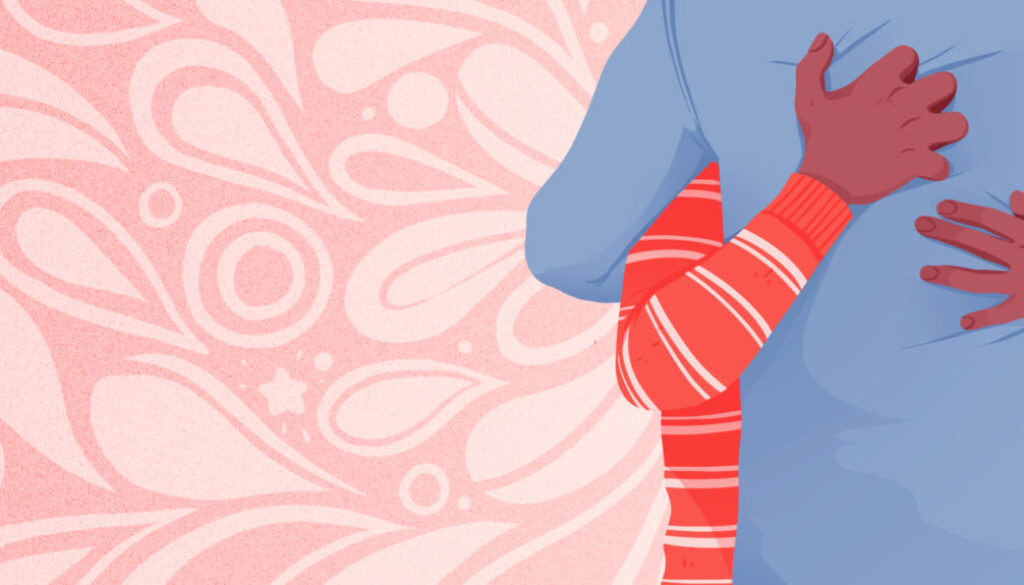What Are the Benefits of Hugging?
*Read the original article here: https://www.healthline.com/health/hugging-benefits
By Erica Cirino
We hug others when we’re excited, happy, sad, or trying to comfort. Hugging, it seems, is universally comforting. It makes us feel good. And it turns out that hugging is proven to make us healthier and happier.
According to scientists, the benefits of hugging go beyond that warm feeling you get when you hold someone in your arms. Read on to find out how.
1. Hugs reduce stress by showing your support
When a friend or family member is dealing with something painful or unpleasant in their lives, give them a hug.
Scientists say that giving another person support through touch can reduce the stress of the person being comforted. It can even reduce the stress of the person doing the comforting
In one study of twenty heterosexual couples, men were given unpleasant electric shocks. During the shocks, each woman held the arm of her partner.
Researchers found that the parts of each woman’s brain associated with stress showed reduced activity while those parts associated with the rewards of maternal behavior showed more activity. When we hug someone to comfort them, these parts of our brain may show a similar response.
2. Hugs may protect you against illness
The stress-reducing effects of hugging might also work to keep you healthier.
In a study of over 400 adults, researchers found that hugging may reduce the chance a person will get sick. The participants with a greater support system were less likely to get sick. And those with the greater support system who did get sick had less severe symptoms than those with little or no support system.
3. Hugs may boost your heart health
Hugging can be good for your heart health. In one study, scientists split a group of about 200 adults into two groups:
- One group had romantic partners hold hands for 10 minutes followed by a 20-second hug with each other.
- The other group had romantic partners who sat in silence for 10 minutes and 20 seconds.
People in the first group showed greater reductions in blood pressure levels and heart rate than the second group.
According to these findings, an affectionate relationship may be good for your heart health.
4. Hugs can make you happier
Oxytocin is a chemical in our bodies that scientists sometimes call the “cuddle hormone.” This is because its levels rise when we hug, touch, or sit close to someone else. Oxytocin is associated with happiness and less stress.
Scientists have found that this hormone has a strong effect in women. Oxytocin causes a reduction in blood pressure and of the stress hormone norepinephrine.
One study found that the positive benefits of oxytocin were strongest in women who had better relationships and more frequent hugs with their romantic partner. Women also saw positive effects of oxytocin when they held their infants closely.
5. Hugs help reduce your fears
Scientists have found that touch can reduce anxiety in people with low self-esteem. Touch can also keep people from isolating themselves when reminded of their mortality.
They found that even touching an inanimate object — in this case a teddy bear — helped reduce people’s fears about their existence.
6. Hugs may help reduce your pain
Research suggests some forms of touch may be capable of reducing pain.
In one study, people with fibromyalgia had six therapeutic touch treatments. Each treatment involved light touching on the skin. The participants reported an increase in quality of life and reduced pain.
Hugging is another form of touch that may help reduce pain.
7. Hugs help you communicate with others
Most human communication occurs verbally or through facial expressions. But touch is another important way that people can send messages to one another.
Scientists have found that a stranger was capable of expressing a wide range of emotions to another person by touching different parts of their body. Some emotions expressed include anger, fear, disgust, love, gratitude, happiness, sadness, and sympathy.
Hugging is a very comforting and communicative type of touch.
How many hugs do we need?
Family therapist Virginia Satir once said, “We need four hugs a day for survival. We need 8 hugs a day for maintenance. We need 12 hugs a day for growth.” While that may sound like a lot of hugs, it seems that many hugs are better than not enough.
So, how many hugs should you have a day for optimal health? According to the best science, we should have as many as possible if we want to reap the greatest positive effects.
Unfortunately, most Western people today — especially people in the United States — are touch-deprived. Many people live solitary or busy lives with reduced social interaction and touching.
Our modern social conventions often push people not to touch others who aren’t directly related to them. However, it seems people could benefit a lot from touching others a bit more.
So, if you want to feel better about yourself, reduce your stress, improve communication, and be happier and healthier, it seems that giving and asking for more hugs is a good place to start.
If you feel nervous about seeking out more hugs, start by asking for them from friends and family members closest to you first.
Science proves that regular hugs with those closest to you, even if brief, can have especially positive effects on your brain and body.



